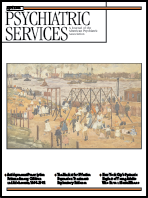Dr. Thomas Szasz's latest book, Liberation by Oppression: A Comparative Study of Slavery and Psychiatry, is fraught with criticisms of current psychiatric practices substantiated by external and seemingly insufficient comparisons. Szasz introduces the concept of the psychiatric slave as an individual "who has been deprived of his or her liberty through the moral and legal justifications set in our society." He offers a comparison between chattel slavery and psychiatric slavery, believing that the only reform is abolishment. He proposes to reintroduce asylums for those who wish to refuse treatment and need refuge. Szasz does not view this as institutionalization but as free will.
In viewing himself as an abolitionist, Szasz lays out four key beliefs that inform his position. First, standard psychiatric practice rests on coercion. Second, physical and chemical restraints masquerade as treatment. Third, the belief that insanity is curable is erroneous and has only worsened the life of mentally ill patients. Finally, psychiatrists are power hungry and need slaves for their fulfillment.
Szasz describes comparisons between the laws that upheld slavery and present-day mental health laws. His arguments are laden with circular logic and an obvious attempt to fit a square peg into a round hole. Discussed is the role of the Tarasoff ruling and the consequential effects leading to "the proliferation of the psychiatric slave." Szasz then reviews seminal legal cases on slavery viewed through the lens of setting precedence toward the oppression of the mental patient. He considers the legal use of "dangerousness to self and others" as a way of creating a belief that mental illness is a public health issue. Szaszian logic concludes that the premise of this creation is "faulty" because it confuses personal conduct with biological conditions. Szasz views self-destruction as a personal choice and views acts that are injurious to others as falling strictly under the auspices of law enforcement.
Although Szasz's ardently libertarian viewpoint raises some legitimate points that are pertinent to oppression and stigmatization, the validity of his points is clouded in Szasz's dogmatic rantings. An example is the comparison of the Jim Crow laws of segregation and the principle of "separate but equal" with the Patient Self Determination Act (PSDA) and the belief that mental illness can be treated like any other illness. Mental health patients, deemed incompetent, are not afforded the same rights under the PSDA. Szasz discusses the power deference toward psychiatrists during the judicial process of competency hearings and advocates for the use of a psychiatric will. Just as he makes a valid point specific to the plight of the oppressed mental health patient, he loses the reader with his caveat that it may "threaten the psychiatrist's frail self-concept as a real doctor."
In Szasz's final comparison, he tells a story about a doctor who became ostracized by his profession but, after his death, was lauded for "telling the truth." The truth is that for years Thomas Szasz has occupied one excruciating end of the dialectic in the field of psychiatry, and his latest book is no different.

